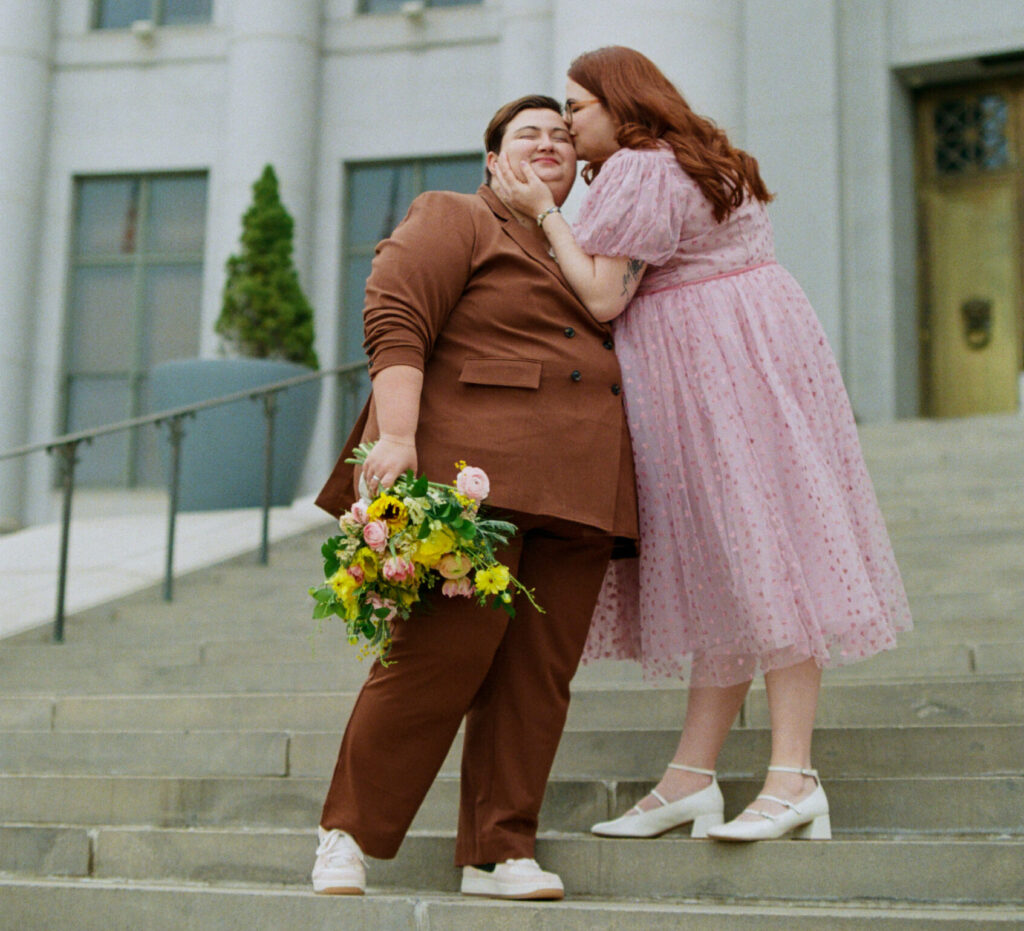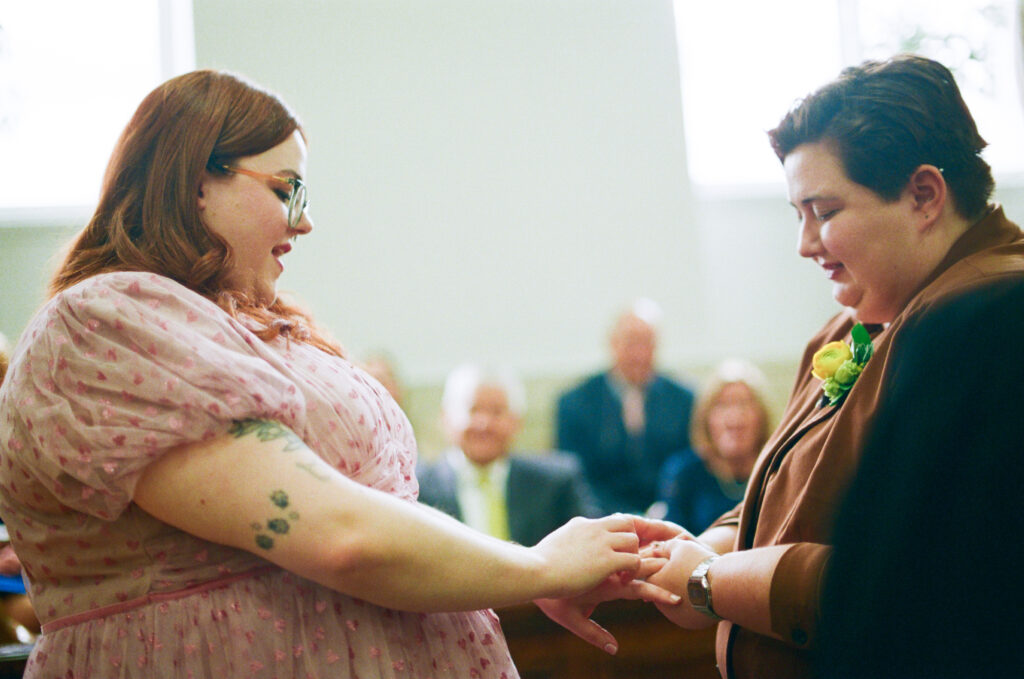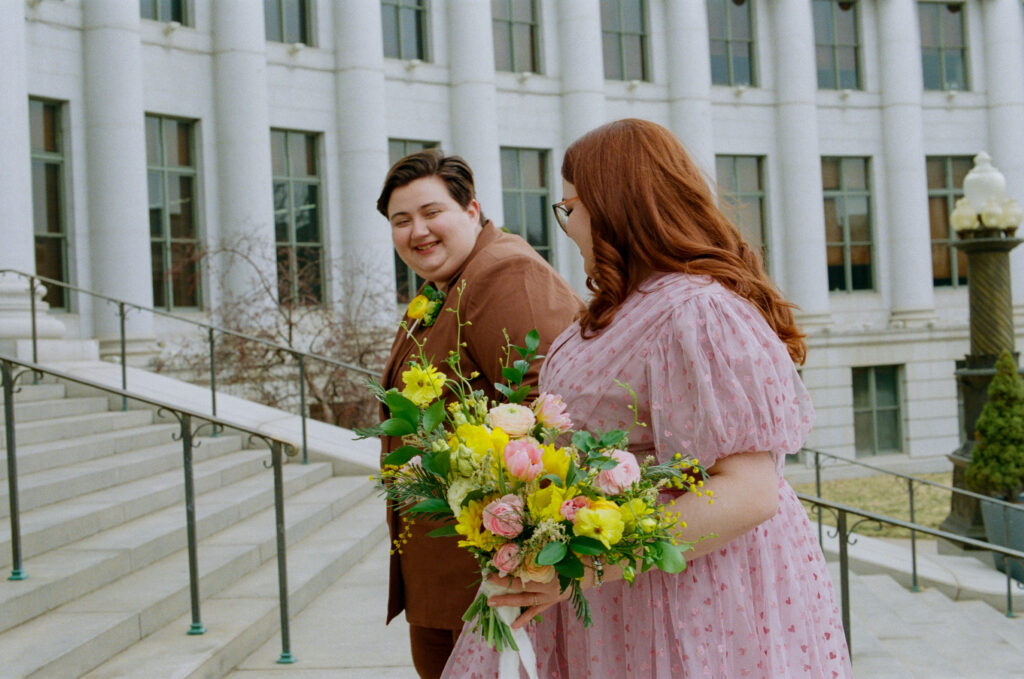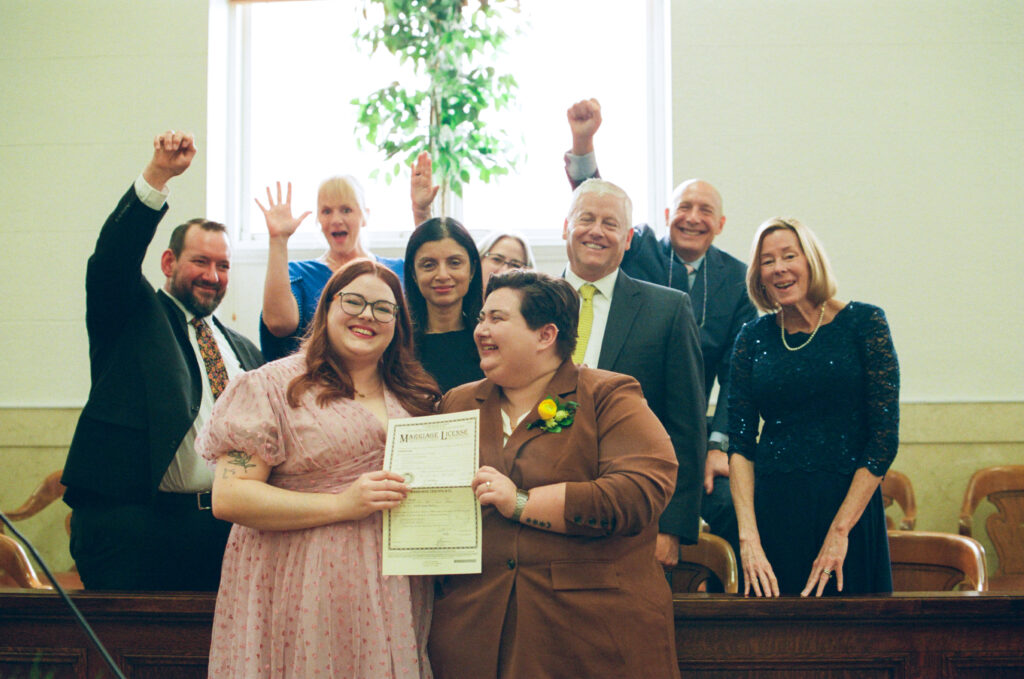By Liz Ternes, Lambda Legal Integrated Marketing Associate
On June 26, 2015, the Supreme Court ruled in Obergefell v. Hodges, changing the course of my life, and the lives of millions of LGBTQ+ Americans, by granting us the legal right to marry.
On November 5, 2024, Donald Trump won a second term on a platform laced with anti-LGBTQ+ rhetoric and threats to civil rights. That same night, my partner and I looked at each other and said: We need to talk.
On March 15, 2025, surrounded by our seven parents, family, and friends, I said, “I do,” and Caroline, my partner of five years, became my wife.
Not to sound too sappy, but I knew I wanted to marry her on our second date, when we bought tickets to a U.S. Women’s National Team soccer match as a long-distance couple. She grounds me when I’m distracted, supports me endlessly, and makes everything feel possible.
We’d had a version of this talk before, in 2022, after Roe v. Wade was overturned and Justice Clarence Thomas suggested that rulings like Obergefell and Loving v. Virginia might be next. At the time, we decided to wait. But by late 2024, we were three more years into our relationship, and we decided it was time to pull a Beyonce and put a ring on it.
Our decision to get married wasn’t only driven by fear, we love each other deeply, but fear accelerated our plans. We, like so many other queer couples in the same position across the country, talked about whether we needed to get married immediately. Should we elope before Inauguration Day? Should we leave Texas to do it? And, heartbreakingly, would it even matter if Obergefell was overturned?
In the end, we made a plan:
- We would get married in Colorado; a state we trust to recognize our union no matter what happens federally.
- We would do it before the Supreme Court announced its next docket, which could include cases aimed at undermining Obergefell.
- We were ready to move faster if needed, but thankfully, we didn’t have to.
When we arrived at the Denver County Courthouse to pick up our license, the clerk noticed our Texas IDs. He looked at us kindly and said, “Your marriage is safe here.” He let us know that he had seen more and more couples like us traveling from states like Texas to get married in Colorado, and that moment made it clear: we were living in a new normal.
Our wedding was beautiful. I spent most of my time focused on not looking too goofy in the pictures, but in a quiet moment, I let myself feel something deeper: immense gratitude for the team at Lambda Legal who made our wedding possible. The work of Lambda Legal was present that day—whether visible or not.
As a member of the Lambda Legal team, I get to support the organization that helped win Obergefell, and that hasn’t stopped fighting since. From securing social security survivor benefits for LGBTQ+ couples who were unjustly denied them, to protecting the rights of queer youth and families in hostile states, Lambda Legal’s work didn’t stop with marriage equality. And right now, it’s more urgent than ever.
(FAQ: Beyond the Basics: Deeper Protections for LGBTQ+ Families and Couples)
I could not be prouder to do this work. And I could not do it without Caroline, my wife, my anchor, my co-planner, and my source of endless courage. Her support gives me the strength to keep going when the news feels unbearable, when another state passes another bill designed to erase our community, or when the Supreme Court looms again.
What gives me hope? My colleagues. Our plaintiffs. Our victories, even when they’re hard-won. The resilience of our community. And Caroline—always, Caroline.
On June 26, 2025, ten years after Obergefell, I’ll be in New York City preparing to celebrate Pride with the Lambda Legal team. I’ll be celebrating our love, our rights, and the unyielding work it takes to defend both.
Because queer love is still a radical act – and I’ll never stop fighting for it.




